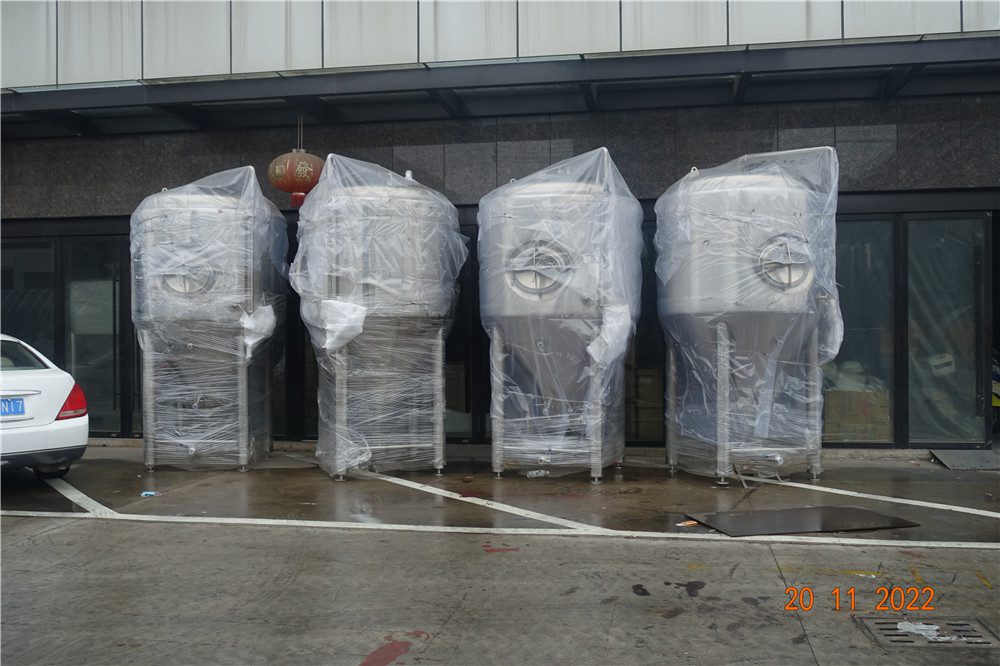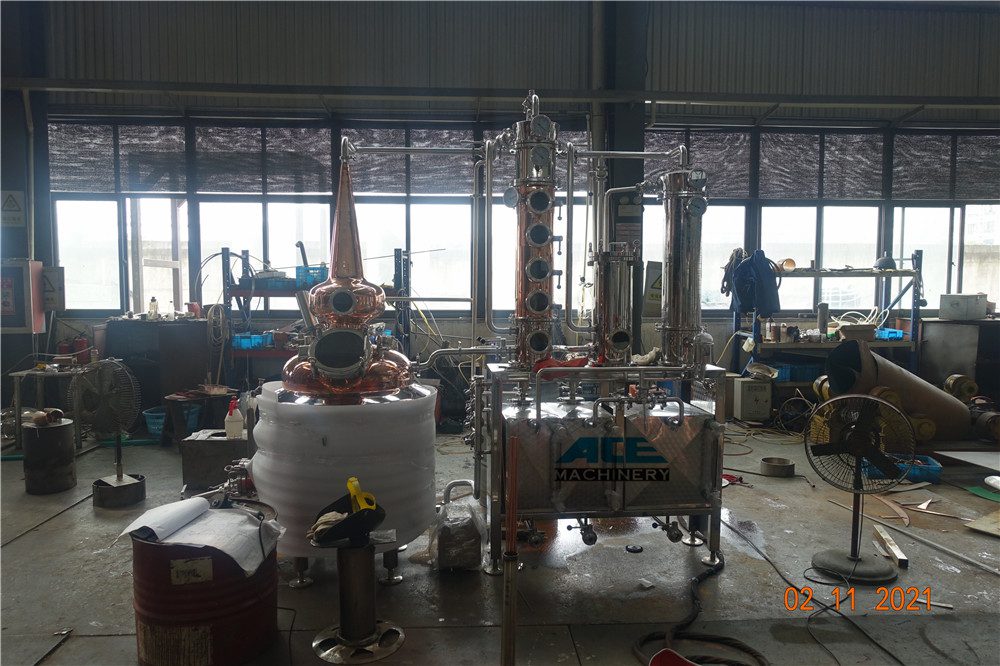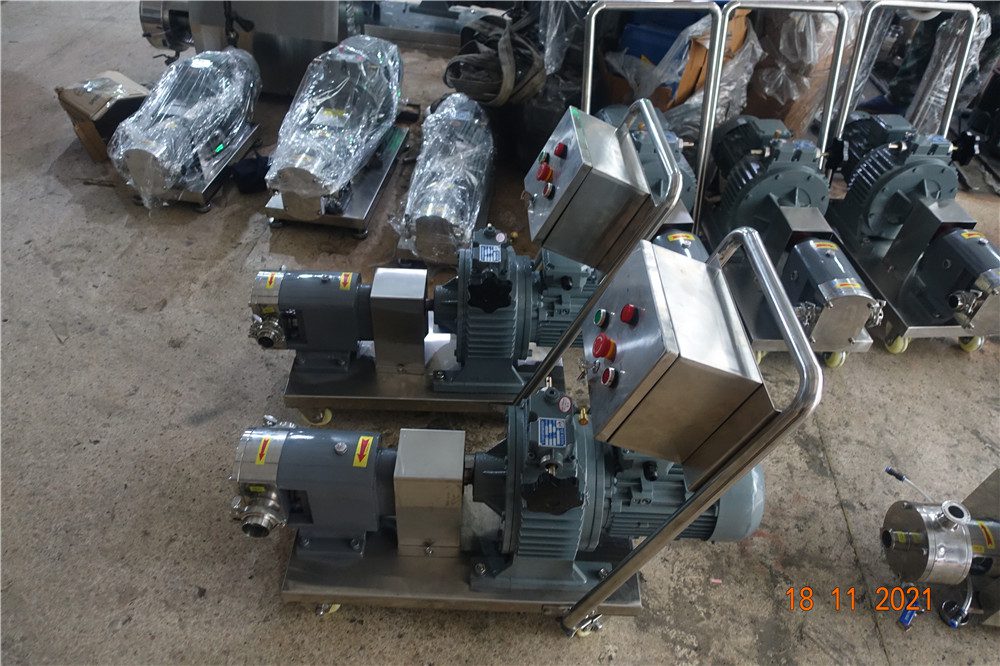A list of the most essential pieces of equipment for setting up a distillery, from the basics like mash tuns and fermentors to the more specialized like spirit stills and condensers.
If you’re interested in setting up your own distillery, there are a few key pieces of equipment you’ll need to get started.
A Distillery Equipment List Can Help You Find the Right Tools for Your Distillery
You can locate the appropriate tools for your distillery using a list of equipment. Additionally, it can assist you in determining if you require any of the listed goods or whether you might get by with what you already own. Making a list of your possessions may help you remember everything. Additionally, it helps you ensure that your distillery is prepared to produce a good batch of whiskey.
tanks and fermentors
Fermentation is crucial in distilling, whether you do it professionally or by yourself. You can only make a high-quality product with adequate fermentation, and this is because wort changes into alcohol when yeast feeds on it. Fermenters and tanks are necessary for a distillery to complete this operation.
The fermenters used most frequently have a cylindrical form, and this particular jar is made to be used outside.
These canisters are difficult to clean, though, and they may rust if they come into contact with alcohol directly. Mild steel tanks must be lined to avoid corrosion. Glass or polymers of the epoxy type are the recommended lining materials.
Think about insulation and cleaning convenience before investing in a tank. It’s crucial to pick a simple tank to modify for adjustments.
Tanks for fermentation can be made in a wide variety of designs. A cone-shaped bottom is one alternative that gathers yeast and debris for more straightforward cleaning and sanitation. Additionally, some of these vessels come with a pressure-relieving mechanism.
If you make beer, you might be thinking about upgrading your tank. Working with a provider that can construct storage tanks with insulation is the best option. Over time, this will enable you to save money.
Wine spirits and hard seltzer are two products produced in fermentation tanks. Depending on your requirements, you can select an open or closed tank.

distiller
It can be easy to select the perfect still for your distillery. Many kinds of equipment are available, each designed for a particular purpose. You must take into account the requirements of your distillery as well as the anticipated production.
Multi-piece reflux still columns are among the best choices. Alcohol vapor is still condensed by reflux into a more robust liquid.
In the 1930s, a column was created for the first time in France. Its ability to be utilized as a pot still is its most prominent quality, and its ability to be employed in the production of alcohol is another crucial aspect.
The ability of copper to remove substances with a sulfuric base from alcohol is one of its finest qualities. Your beverage’s flavor may vary as a result of the sulfur compounds. Scrubbers for copper are a helpful tool for this.
Additionally, copper helps stop vessel erosion. Although copper is more expensive than stainless steel, the added cost is worthwhile. Corrosion is less likely to affect copper, and its responsiveness may also be a disadvantage.

Pumps
among the several parts of distillery gear, pumps are essential. Although they are employed in many other sectors, pumps are essential in creating excellent liquor. Therefore, it’s critical to choose the right pump for the job. Pick from various high-quality pumps to fit your demands, depending on your needs.
Asking for referrals from other distillers is one of the finest methods to get the ideal pump for your company. The inconvenience of downtime can be reduced by having a dependable pump.
If you intend to spend much money on a pump, choose the best one for the job. This can include spending money on reliable pumps that operate at various pressures and temperatures, and this will guarantee that you maximize your investment.
Although pumps are not inexpensive, you may shop around to get a decent offer. Quality pumps can be purchased online from various vendors, and you may also compare prices from several local businesses to determine who offers the most incredible deals. Last but not least, be sure the pump you select is durable. A high-quality pump will last longer and keep your company operating at its best.
The easiest method to maximize your investment is to select the right pump for your company.

Weighing scales
Whether you are an experienced brew master or just getting started, weighing distillery equipment is crucial, and it is just as crucial to a skilled distiller as the mashed grain used to make whiskey and rum.
Both weigh everything, and maintaining precise records of the weights you measure is crucial. These records can aid the TTB reporting process. Implementing the appropriate safety precautions is crucial, and a distillery is a dangerous place to be.
You can weigh your ingredients precisely and effectively with the correct scales. Choose from a wide variety of scales, such as floor scales, bench scales, and pallet scales. The latter is helpful when weighing a sizable amount of merchandise before distribution.
You should weigh your hops, for instance. You’ll need a scale with an enormous capacity because these usually weigh in pounds.
For weighing your grain, you might also want a scale. Grain is typically packaged in relatively large sacks, and the ideal solution for this application could be a floor scale. A scale with a different indication for grain weight is also an option.
Be careful to consider the density of your items when you weigh your ingredients. This is an excellent technique to obtain an approximate sense of how much you will weigh, but for the most precise measurement, you might require a specific microscope slide.
Other measuring instruments
There are other tools to measure distillery equipment in addition to the conventional equipment in a distillery. Several devices are among them. They might not be the most innovative or cutting-edge, but they can be accommodating. Some of them are affordable and simple to use.
The hydrometer is the most widely used and least expensive of the group. It calculates the amount of alcohol in your mash or wort and estimates your yield. You may use it to monitor the advancement of your fermentation. A refractometer is preferable since it can accomplish the same task.
The refractometer is a helpful instrument for Brix measurement. Brix measures how much sucrose there is in 100 grams of liquid. Because it corresponds with specific gravity, Brix is a valuable measure. A measurement of a liquid’s density, or specific gravity, is expressed as one or zero with three decimal places. A refractometer’s most straightforward application is calculating a liquid’s density.
safety precautions
Safety management is essential for a distillery to continue producing high-quality goods and avoid mishaps. Additionally, it safeguards against injury to the community, workers, and clients. Accidents might have significant repercussions if they occur, and they may cost you precious goods, turn away clients, and harm your company’s reputation.
OSHA oversees the alcohol industry and mandates a set of guidelines that all businesses must follow. In particular, distilleries need to ensure they follow the State Plan for the Alcohol Industry when conducting business. The Kentucky Occupational Safety and Health Program has approved this plan. Additionally, it calls on distillery owners and managers to guarantee that their establishments abide by government rules.
Distilleries must follow various other health and safety laws and OSHA rules. Workers must, for instance, use safety precautions and wear protective gear, and they are required to wear safety footwear, face protection, and bump caps.
Distilleries should undertake preventative maintenance, train their staff to cope with crises, and follow safety protocols. Additionally, they have to audit their facilities regularly. These steps will lessen downtime, prevent accidents, and ensure employee safety.
Distilleries should ensure their spaces are well-lit and ventilated to reduce the risk of accidents. They should also store combustible materials as little as possible.
